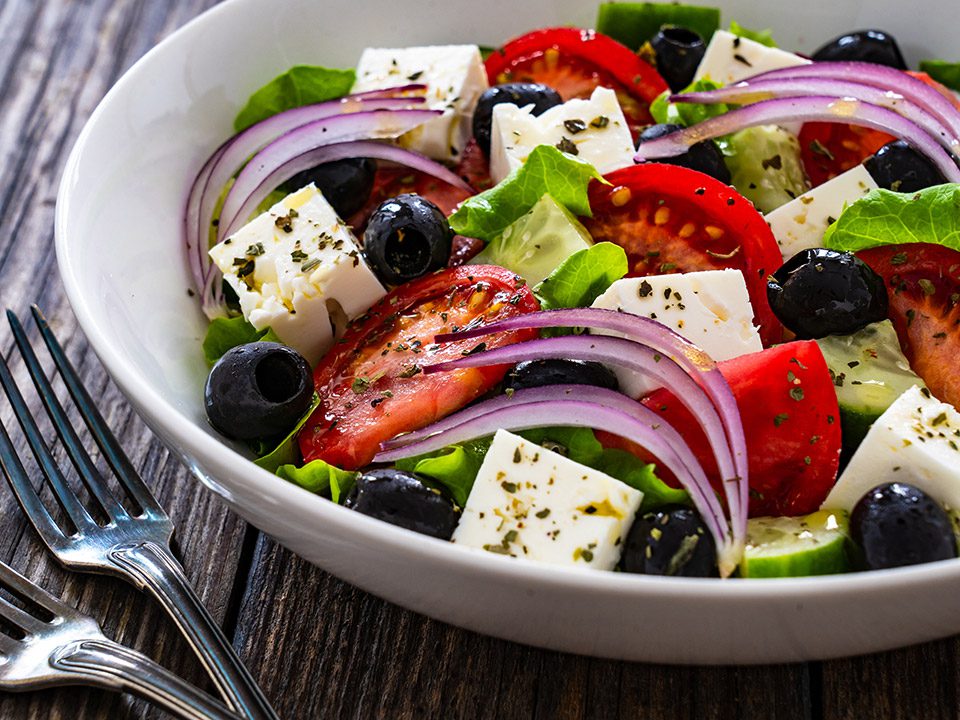The Mediterranean diet has gained popularity in recent years for its numerous health benefits. The traditional eating patterns of people in Mediterranean Sea-bordering nations like Greece, Italy, and Spain are the inspiration for this diet. It is known for its emphasis on whole, unprocessed foods and a high consumption of fruits, vegetables, whole grains, legumes, and healthy fats. In this blog post, we will explore the best foods for a Mediterranean diet and how they can benefit your health.
1. Fruits and Vegetables
Fruits and vegetables are the cornerstones of a Mediterranean diet. They are rich in vitamins, minerals, and antioxidants and are essential for maintaining good health. The Mediterranean diet recommends consuming at least five servings of fruits and vegetables per day. Some of the best options include:
- Leafy greens such as spinach, kale, and arugula
- Tomatoes
- Broccoli
- Peppers
- Eggplant
- Artichokes
- Oranges
- Berries
- Apples
- Avocados
These fruits and vegetables are not only delicious but also provide a wide range of nutrients that can help prevent chronic diseases such as heart disease, diabetes, and certain types of cancer.
2. Whole Grains
Whole grains are an important part of the Mediterranean diet. They are a great source of fiber, vitamins, and minerals and can help lower the risk of heart disease and improve digestion. Some of the best whole-grain options include:
- Whole wheat
- Oats
- Barley
- Brown rice
- Quinoa
- Buckwheat
These whole grains can be incorporated into meals such as salads, soups, and stir-fries, or used as a substitute for refined grains in dishes like pasta and bread.
3. Legumes
Legumes, also known as pulses, are a staple in the Mediterranean diet. They are a great source of plant-based protein, fiber, and essential nutrients. Some of the best legumes to include in your diet are:
- Chickpeas
- Lentils
- Beans
- Peas
- Edamame
Legumes can be used in a variety of dishes, such as soups, stews, and salads, and are a great alternative to meat for those following a vegetarian or vegan diet.
4. Healthy Fats
The Mediterranean diet is not afraid of fats, but it focuses on consuming healthy fats in moderation. These fats are essential for maintaining good health and can help reduce the risk of heart disease. Some of the best sources of healthy fats in a Mediterranean diet include:
- Olive oil
- Nuts and seeds
- Avocados
- Fatty fish like salmon, tuna, and sardines
These healthy fats can be used in cooking, as a salad dressing, or as a snack. They are also a great source of omega-3 fatty acids, which have anti-inflammatory properties and can help improve brain function.
5. Herbs and Spices
Herbs and spices are used abundantly in Mediterranean cuisine, not only for flavor but also for their health benefits. They are a great alternative to salt and can add depth and complexity to dishes. Some of the most commonly used herbs and spices in a Mediterranean diet include:
- Basil
- Oregano
- Rosemary
- Thyme
- Cumin
- Cinnamon
- Turmeric
These herbs and spices not only add flavor to meals but also provide antioxidants and anti-inflammatory properties that can help improve overall health.
Conclusion
The Mediterranean diet is not just a diet, but a way of life. It promotes a balanced and varied diet that is rich in whole, unprocessed foods. By incorporating these five food groups into your meals, you can reap the numerous health benefits of a Mediterranean diet, including a reduced risk of chronic diseases and improved overall well-being.
Remember to always choose high-quality, fresh, and locally sourced ingredients when possible to fully experience the flavors and benefits of a Mediterranean diet. So, next time you’re planning your meals, think of the Mediterranean and all the delicious and nutritious foods it has to offer.


